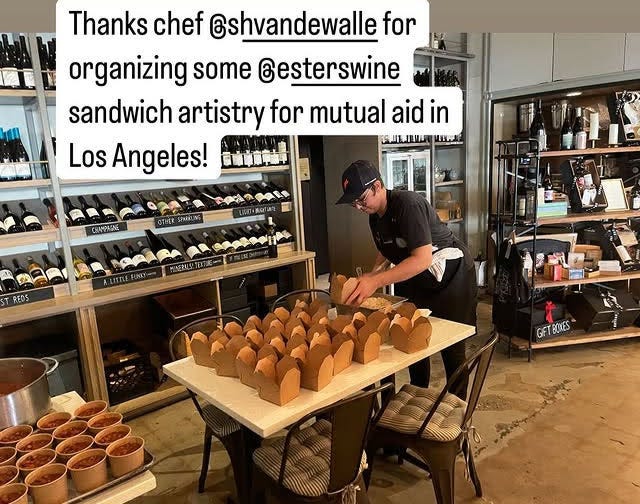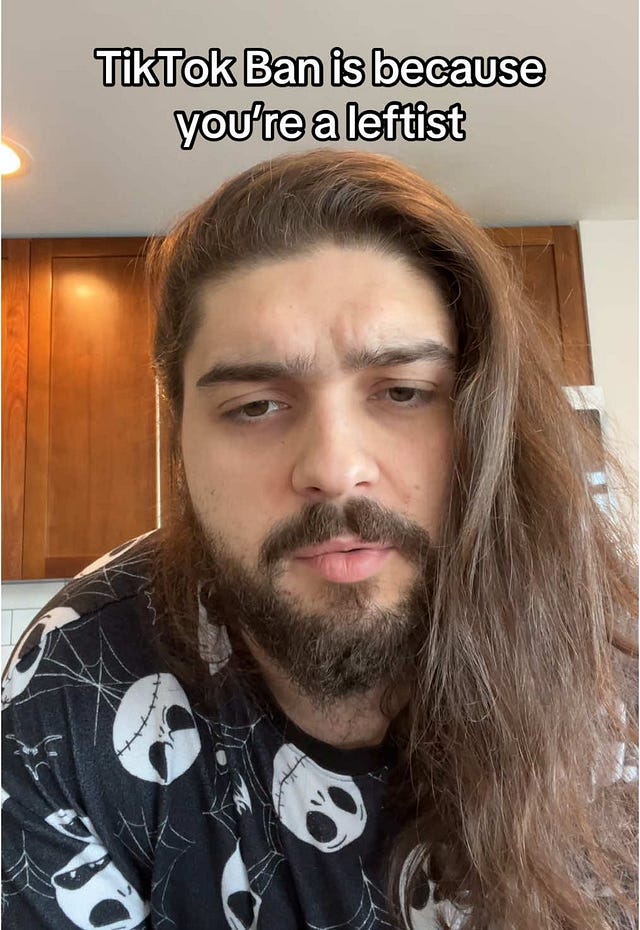When crisis strikes, authority can take many forms. In Los Angeles, the recent wildfires have revealed not only the shortcomings of institutional responses but also the extraordinary power of grassroots community action. Angelenos are redefining resilience and solidarity through mutual aid and spontaneous organizing. These bottom-up initiatives are reshaping how we think about authority, governance, and collective care.
A Grassroots Response to Catastrophe
As fires swept through neighborhoods, displacing families and devastating landscapes, it wasn’t government agencies that first stepped in. It was neighbors, small organizations, and informal networks. Platforms like TikTok, Instagram, and community message boards became lifelines for coordination and information-sharing. In an age where institutional authority often falters under pressure, these networks exemplify the strength of decentralized action and the rise of cognitive and community authorities.
Take, for example:
The makeshift donation center established at Santa Anita Park in Arcadia. What started as a single street vendor offering hot dogs to firefighters quickly snowballed into a full-scale relief hub. Hundreds of volunteers gathered to sort clothing, direct traffic, and provide essential resources. The rapid mobilization underscores the agility and empathy that grassroots efforts can bring to crisis situations.
Altadena Girls Recovery Fund Led by 14-year-old Avery Colvert, this initiative raised funds and resources specifically for teenagers affected by the Eaton Fire. The hyper-local focus filled a gap overlooked by larger organizations and demonstrated the unique power of youth-led activism. (Time)
Mutual Aid LA Network Serving as a connector for various community groups, this network provided up-to-date information on volunteer opportunities, donation needs, and emergency services. Their digital-first approach made it easier for individuals to plug into existing efforts. (Mutual Aid LA)
World Central Kitchen Renowned for its rapid response to disasters, Chef José Andrés’ organization provided thousands of meals to first responders and evacuees, ensuring that nourishment was one less concern for those on the front lines. (Vanity Fair)
Pasadena Humane Society In a city as animal-loving as LA, pets weren’t forgotten. This organization rescued and sheltered animals displaced by the fires, offering medical care and reunification services. (LA2050)
Unlike charity or government relief, mutual aid is a fundamentally reciprocal practice. It’s rooted in the idea that communities should directly support one another rather than relying on hierarchical structures. Mutual aid networks emphasize solidarity over saviorism, focusing on collective empowerment rather than top-down solutions.
This distinction is more than philosophical. It changes the speed and effectiveness of responses. In LA, mutual aid initiatives were able to act quickly because they didn’t require bureaucratic approvals or lengthy planning processes. They leveraged local knowledge, decentralized communication tools, and the intrinsic motivation of neighbors helping neighbors.
The wildfire response in Los Angeles offers a powerful case study in the limitations of traditional authority and the promise of grassroots alternatives. As climate crises become more frequent and severe, the ability of centralized institutions to manage these challenges will likely continue to erode. Mutual aid and community organizing aren’t just stopgap measures; they’re a glimpse into a new model of governance that prioritizes agility, inclusivity, and local agency.
The fires in Los Angeles have been devastating, but they’ve also illuminated a profound truth: real authority comes not from power but from care. In the face of disaster, the people of LA are showing the world what that looks like.
Goodbye to My Chinese Spy
Metaviews correspondent at large PJ Lilley wrote in wanting to share the following post that is a good follow up from what we shared yesterday:
It reminds us that substack is becoming a kind of social media platform, with notes emulating the old Twitter in a fashion, and users encouraged to follow others, in addition to subscribing.
Adjacent to the political crisis we all find ourselves in, social media as an industry is experiencing a crisis as well. One that TikTok users seem to be handling with humour and action.
In the face of mounting concerns over data privacy and geopolitical tensions, TikTok users have adopted a satirical trend, humorously addressing their "personal Chinese spy" to mock the surveillance anxieties associated with the platform.
This trend underscores a broader movement toward user empowerment and mutual aid within social media ecosystems.
Free Our Feeds?!
Initiatives like PeopleTok and campaigns such as FreeOurFeeds (featuring Metaviews member Mark Surman) exemplify this shift.
PeopleTok, spearheaded by Clearlight Studios, aims to establish a collectively owned social media platform modeled after TikTok, redistributing control and wealth back to its users.
Similarly, FreeOurFeeds supports the development of decentralized, open infrastructure for social media, resisting corporate capture and promoting user autonomy.
The Pivot to Rednote
Amid these developments, Rednote—known as Xiaohongshu in China—has emerged as a form of protest.
The Role of the Incoming Administration
Donald Trump’s return to power intensifies the urgency of these efforts. His first term weaponized social media to amplify disinformation, normalize bigotry, and undermine trust in institutions. There’s little reason to believe his second term will chart a different course.
The shift we’re witnessing is not just about technology; it’s about authority. Who gets to control the spaces where billions of people communicate, organize, and share their lives? For too long, that authority has been concentrated in the hands of a few corporations and their billionaire leaders. But the tide is turning.
To sustain this momentum, these efforts will need broad support. Users must be willing to invest not just money but also time and attention in alternative platforms. Developers and technologists will need to prioritize interoperability and user control.
The fight for the future of social media is far from over, but one thing is clear: the old models are breaking down. A new digital era is on the horizon, and its contours will be shaped by those who dare to challenge the status quo.
With that in mind, and if you’ve read this far, are you up for a salon this subject? Metaviews member David Mason made the suggestion and we were thinking next Monday afternoon, at 3pm, which seems apt given what happens next Monday at noon. If three of you, who want to participate, post a comment on this post, we’ll make it happen! 😎
 Tiktok failed to load.
Tiktok failed to load.Enable 3rd party cookies or use another browser







A thoughtful discourse on a new digital era would be interesting if not somewhat ironic considering discourse and thought is what is being done away with the further we allow for the flow of ideas to be centred by oligarch & billionaire bias. Sign me up for a saloon.
It should be noted that at least among the more experienced organizers mutual aid in LA is building upon lessons learned in NC in the wake of hurricane Helene. I wonder if we will see continuing refinement of these movements as climate disasters begin to pile up. Also the Chinese spy memes being exchanged on Rednote by Chinese & American users are hilarious, as is the discovery by the latter that many Chinese users deploy a sly humour that totally contradicts all the anti-Chinese stereotypes they've been fed